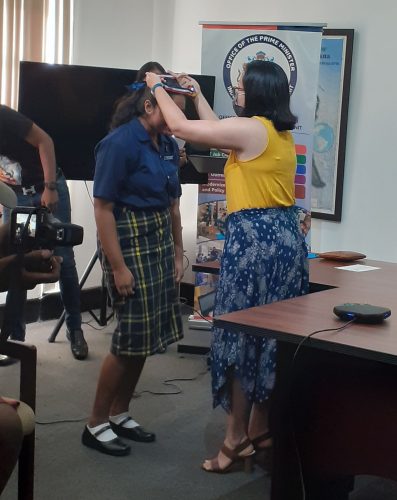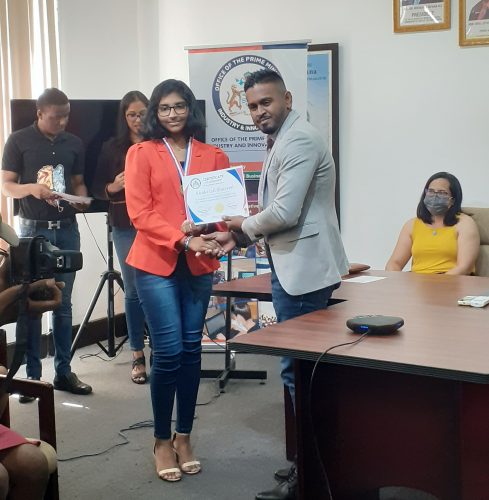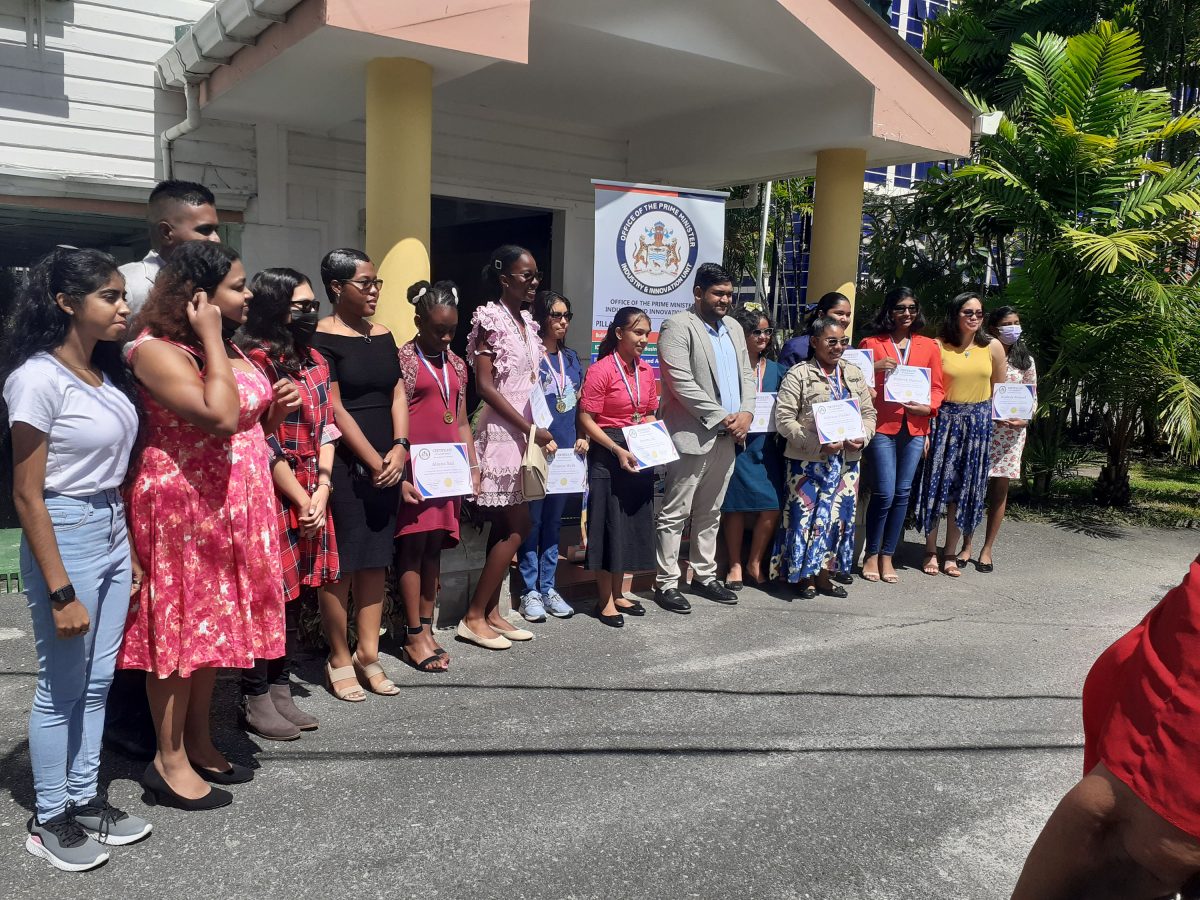Ninety-eight girls yesterday graduated from an online Guyanese Girls Code Information and Communication Technology (ICT) programme that was conducted by the Office of the Prime Minister’s Industry and Innovation Unit in collaboration with the University of Guyana.
The top students were Aliana Saul, Ameena Ali, Dollyann Holder, Rebecka Douglas, Renatta Blair, Renika Anand, Sameeah Singh, Shakirah Shareed, Shreya Ramnarine and Titianna Wells, who received medals and certificates. Other participants received certificates of participation and completion.
The graduation ceremony was held in person at the Colgrain House on Camp Street, while Some participants attended via Zoom.

The ICT programme, which was launched on August 13, was intended to teach Guyanese girls about the various elements of technology and also to encourage them in careers in Science, Technology, Engineering and Mathematics (STEM).
According to the Director of the Industry and Innovation Unit Shahrukh Hussain, although the programme started off with 143 participants, only 98 completed it as poor internet connectivity in some of the regions affected some of them.
In addition to poor internet connectivity, he said some of the participants found it hard to balance the classes with their school work.
Hussain, however, said that going forward the Unit would be seeking to conduct “in-persons” classes by

using various training and ICT centres in each region to reach more participants.
The programme which was being conducted during the weekend for two hours per day not only saw female learners, but it was also being taught by female lecturers, instructors and mentors.
During the programme, the girls used technological platforms, such as scratch, robotics, programming and coding to create games, build models of houses and also to create other programmes.
One of the lecturers, Penelope DeFreitas, explained that each of the skills taught to the girls can be used in any profession. “The training was about STEM and robotics, so we taught them various skills on how they can get up and running with creating a programme and we also taught them to use these skills to think about how they can solve other problems…they also had exposure to scratch programming, VR robotics and that’s a little robot simulation that they can use to actually create things like little projects like modelling a house to going through a maze and so forth…all of that also helped them practice their problem solving and their creativity skills and all those 21st century skills and these skills can be applied to any profession,” said DeFreitas.










